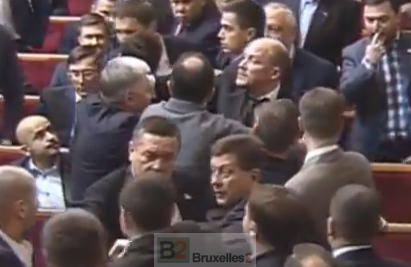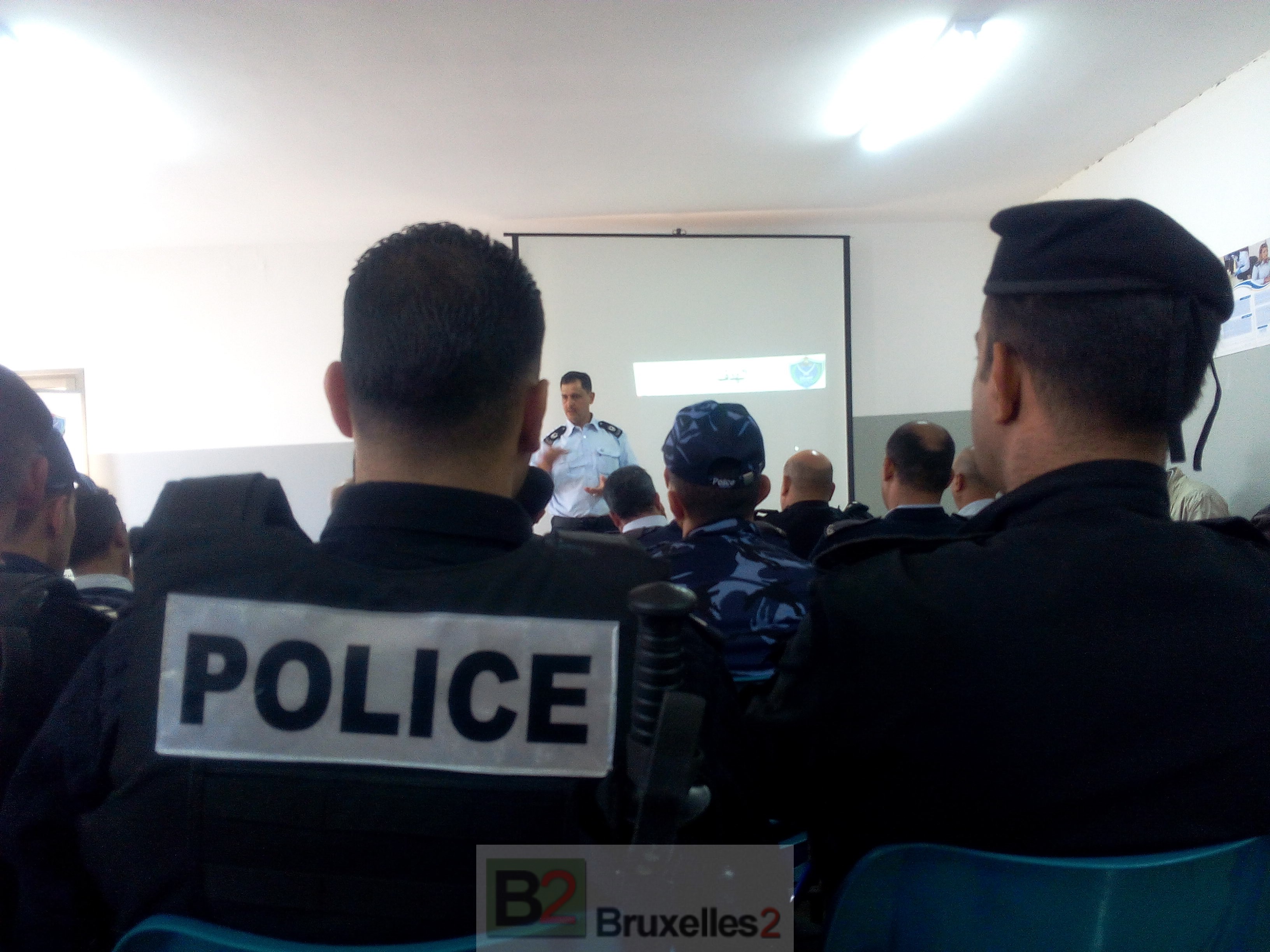On the “border” line between Moldova and Transnistria

(BRUSSELS2 - along the administrative line between Transnistria and Moldova) How to control a border that is not one? This is the challenge facing Moldovan authorities at the administrative line that separates Moldova from the unrecognized, pro-Russian state of Transnistria. The European border assistance mission, EUBAM must support them and ten experts are present on the 400 kilometers of the administrative line. "But only on the Moldovan side" as Heinrick Heinke, head of the mission office in Chisinau, insistently explains.
No contact with Transnistria
“We have no contact with the Transdniestrian side”. The settlement of the Transdniestrian conflict, another task of the EUBAM mission, is left to those in charge of the headquarters located in Odessa, Ukraine. For the 10 experts from the Chisinau office assisting the Moldovan authorities, the task is therefore proving delicate. Because no cooperation is possible with the authorities opposite. And the framework of their mission is strict: “We support all customs-related issues to and from Transnistria” says Heinrick Heinke.
Internal customs posts

To go to Transnistria, one must first enter the security zone and pass through the military posts of the Russian, Ukrainian and Moldavian tripartite peacekeeping force. The cars slalom between the black and white obstacles, and the tanks, guarded by men in fatigues and armed. A few kilometers later, a stop sign is placed in the middle of the road. A Moldavian policeman, dressed in black, stops vehicles coming from Transnistria, a customs officer in a blue uniform inspects them and issues the documents necessary for transit. We are in one of the sixteen ICCP (Internal Customs control Post, Internal Customs Control Post) of the administrative line. "There are no border guards, because it is an internal post and not a border post" Heinrick Heinke tells me. No barrier therefore: “you are not blocked at the administrative line”. On the Transnistrian side, the atmosphere is quite different. It is a real border post with a barrier, customs and guards who control all vehicles.
Prevent blockage of the flow of goods
On the four hundred kilometers of the administrative line, the task of the EUBAM experts is rather “to assist Moldovan customs officers in monitoring goods trucks to ensure that there is no illegitimate blockage”. Goods trucks are thus systematically stopped by the Moldovan authorities in order to "check whether the goods transported are exempt, or not, from taxes". Indeed, if the goods come to be used in Moldova, “Taxes must be paid”. But in case of transit of goods, Transdniestrian trucks are exempt from VAT and luxury goods taxes. And this concerns the majority of vehicles from Transnistria circulating on Moldovan territory (Editor's note: 75% of Transnistrian trade is with the west, Read on the Club: Moldova's neutrality and a European perspective (Igor Corman). Eight experts, mainly Bulgarian, German, Romanian and Polish, regularly go to the 16 positions to improve “risk profiling” and give " advices " at Moldovan customs. A job that is also done alongside the mobile units.
Assist and train mobile units

We find the experts of the EUBAM mission on the road that goes from Chisinau to Tiraspol alongside the mobile Moldovan units. Two experts, a Bulgarian and a German, as well as a Moldovan (the interpreter) assist two Moldovan customs officers, who stop on the road the vehicles which seem suspicious to them, mainly small trucks from Transnistria, suspected of trafficking in goods of all kinds. "The training of mobile units is part of the recommendations of the EUBAM mission" welcomes Heinrik Heinke.
`Each came with their own vehicles and (a little) stuck by the language barrier (the customs officers met refused to speak a language other than Moldovan), EUBAM experts and customs officers are both on the side of the road with well-defined roles. “We are not proactive” details the Head of the Chisinau office. “We only intervene in the work of Moldovan customs officers if there is a violation of human rights”. Experts monitor each vehicle check and advise customs officers to ensure the correct "operation of these units".
And for men?
If the EUBAM mission insists on its role of assistance for " the goods ", it is the question of men entering from Transnistria towards Moldova that haunts the Moldovan authorities. “Supported by the EUBAM mission”, a joint declaration, signed in 2012, thus allows the registration of goods and people taking the train between Chisinau and Tiraspol at the Ribniza post. And the EUBAM mission plays its technical role. “When the train arrives at the administrative line, it must stop. We make this process easy » says Heinrik Heinke.
A brand new migration service

But this is not the only means used by the Moldovan authorities. Since November 2013, they have also opened a migration service in six ICCPs. It's actually a small brand new prefab office next to the customs department. It's a “voluntary service and not official registration as such” indicates the officer of the migration office. The service is mainly aimed "to strangers" who wish to be registered when entering Moldova via Transnistria. When the migration officer is asked how many foreigners he checks in per week, he smirks. "There are not many people... Maybe two or three people". And the head of the EUBAM mission office insists. “No one is arrested because it is not compulsory”. Moreover, at this administrative line, he claims not to have noticed " no change " with recent events in Ukraine "on the flow of goods".
(Loreline Merelle)
About the Club:
- Moldova's neutrality and a European perspective (Igor Corman)
- Transnistria, stuck between European and Russian desires, is looking for its way
- The 5+2 negotiation on Transnistria is bogged down
- At the borders of Moldova and Ukraine: "there is still work" (Slawomir Pichor, EUBAM)
On the Blog:

